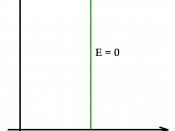The demand for road transport is a derived demand, derived from the demand to transfer both the population and goods between different locations (Griffiths and Wall. et al 1999) and is heavily influenced by both time and space, subjected to regular fluctuation creating the characteristic peak and off peak situation upon urban roads. This results from the immediate consumption of a road, if it is to be considered as a good, preventing the possibility of storing the good for periods of greater demand. The demand placed upon road transport is therefore affected by three main factors; the price of road transport, the price of alternative transport services, and individual income.
However the true cost of road transportation is hard to quantify as there are many external costs not considered by an individual when calculating the marginal cost and benefit ratio before undertaking a journey (Parkin. 2000). These externalities include the cost of congestion, especially during peak periods adding to the cost of fuel and time to the journey, air pollution and its resulting effects upon both human health and the environment, noise pollution effecting property value in areas surrounding busy roads, and the costs of traffic law enforcement.
Initially the under pricing of road transport was beneficial to the motor vehicle industry due to the economics of scale at the time, encouraging private car ownership with the reduction in the average costs of running a car. However today there are very few further economics of scale available in the motor industry, which is common for many mature industries, as an increase in the number of cars on the road does not guaranty a benefit for society and has both positive and negative effects on the economy of a nation; it can be seen that the external costs and diminishing returns...


